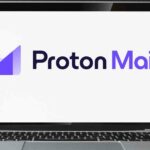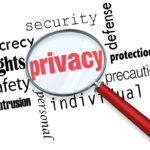by Reese Kimmons, MS ISA
The Proton organization is battling big tech, intrusive governments, and cybercriminals to preserve what’s left of online privacy and hopefully to turn the tide back in the right direction. Their secure products provide the ability to browse the Internet and communicate without being tracked or surveilled.
The organization was formed in 2014 with the goal of limiting the capabilities of dictators and oppressive regimes attempting to stifle the efforts of political dissidents and journalists. Now, Proton’s services are available worldwide to anyone who wants to securely navigate the Internet while protecting their privacy and sensitive data.
Proton is based in Switzerland, one of the most privacy-friendly countries in the world. Proton Mail and ProtonVPN, the organization’s flagship email and virtual private network solutions, use strong encryption technology to protect data in transit and at rest.
As an example, not even Proton’s engineers have the ability to unencrypt a subscriber’s emails. This means that, even if they are subpoenaed to do so by government agencies, they can’t provide to those authorities any readable copies of the contents of customers’ messages. Only the intended recipients can decrypt and read the secure messages sent via Proton Mail.
Proton’s VPN service not only secures online communications using a robust international network of VPN servers, it also allows those who live in countries that deny access to certain websites to defeat censorship controls.
Proton has now added secure encrypted file sharing and calendar services to its menu of offerings and recently expanded services for its email customers. The best part? You can try Proton products at no cost. If you like them, and I’m predicting that you will, more tools and storage are available for very reasonable monthly or annual subscription fees.
“Surveillance Capitalism”
This is a great phrase to describe the activities of those who collect and sell our data. Andy Yen is Proton’s CEO. In a recent interview with Time Magazine, he used the phrase “surveillance capitalism” to describe the way Big Tech operates.
Yen said that, “the accepted common knowledge was that the only way to make money online was to adopt Google’s model – that surveillance capitalism was the way to go if you wanted a profitable and sustainable and scalable business.” Yen and the Proton staff are proving otherwise.
How Proton Survives and Thrives

If Proton isn’t following the accepted norm of collecting and selling users’ data, and given that they offer their basic services for free, how can the organization not only survive but thrive? In his Time interview, Yen said they are, “serving users and not advertisers.” Proton’s business model prohibits the surveilling of its users in return for compensation from advertisers.
Yen believes that, if privacy-based alternatives to services provided by Big Tech are made available, users will come. He’s right. The Proton staff has increased four-fold since the onset of the COVID pandemic, going from about 100 employees to over 400. Predictions are that this count will rise to around 800 within the coming two years.
More About the CEO
Andy Yen earned a PhD in particle physics from Harvard University. He moved to Switzerland to work at the CERN nuclear research facility, which also happens to be the birthplace of the Internet. He obviously didn’t need to look for a new job or a different career. In his interview, Yen told Time that he never intended to leave his chosen profession as a nuclear physicist to get into the technology business.
It was reflecting on his past experiences growing up in Taiwan that eventually convinced him of the need to create an organization like Proton. (And now you understand why it’s called Proton.) Yen recalled observing China increasing its control over Hong Kong, limiting citizens’ rights including the right to personal privacy. Yen created the Proton organization with the goal of doing his part to ensure, “that democracy and freedom can survive in the 21st century.”
The event that finally triggered Yen’s transition to becoming the founder and CEO of a tech company was the 2013 revelation by Edward Snowden that the U.S. National Security Agency was conducting surveillance on the online activities of millions worldwide and that private tech companies were assisting in the effort. Yen’s concern about the need to find, “a different way for technology and the Internet to evolve” led to his founding of Proton.
How popular was his decision? Within days of the 2014 launch of Proton Mail, the core servers crashed due to higher than expected demand. Crowdfunding, user donations, and a fundraiser quickly raised over a half-million dollars donated by more than 10,000 users. Yen’s visionary plan was on the right track.
Competing with Big Tech – End-to-End Encryption

Both Apple and Google offer encryption of emails in transit as well as encryption of the data stored in users’ calendars and drives. Both companies can, however, decrypt their users’ stored and in-transit data. This means that, unlike with services provided by Proton, user data is not encrypted “end-to-end.”
With end-to-end encryption, only the owner of the data and any recipients with whom the owner chooses to share data have the cryptographic keys necessary to decrypt and view that data. This means that no one else, including Internet and telecom service providers, government agencies, or even the providers of the encryption and storage services can decrypt and read the data. Recall that not even the engineers who maintain the email services at Proton can read users’ emails.
End-to-end encryption is one of the services provided by Proton that allows them to compete with Big Tech. Recently, they’ve added more tools that employ this same level of data encryption. Proton now offers Proton Drive and Proton Calendar. Both come with Proton’s privacy promise.
The organization’s stated goal is to create a privacy focused ecosystem that will give tech users the choice to move away from the Big Tech data miners seeking to profit from their users’ information. Based on Proton’s initial popularity and its past and predicted growth rates, it’s working.
Proton’s new Drive and Calendar options may not yet come with all of the features of the Big Tech alternatives, but what they currently lack in bells and whistles they make up for in privacy protection.
Political Efforts
Some U.S. lawmakers are backing efforts to get some control over Big Tech’s data collection practices and to allow more competition from companies like Proton. These efforts include antitrust legislation that, if it becomes law, would prohibit Apple and Google from giving preferential treatment to their own services on iPhone and Android devices.
The tech giants could also be prohibited from taking commissions on payments made via their app stores. These actions could give a leg up to their competitors. Proton is voicing its approval of these efforts and encouraging those lawmakers who are attempting to level the playing field.
Find Out More About Proton’s Products and Pricing
You can find out more about Proton’s mail, calendar, storage, and VPN products at Proton.me. Clicking on the Security and Privacy link will allow you to create your free Proton account.
When you click on the Pricing link, the default information for the various pricing plans and options is displayed in Euros. If this isn’t your currency, just scroll down a bit and look for the dropdown link on the right that allows you to change the displayed pricing to something more familiar.
Continue to scroll down on the pricing page and you’ll see all the options available with the various plans, including the free ones. You’ll also find FAQs that should answer most inquiries regarding pricing, plans, and options.
Proton services are available for use with your computer, phone, and tablet. Proton has recently upgraded some of their options without increasing the price being paid by existing users – more evidence of the consumer-focused mindset. For example, I went from VPN licensing for two devices to licensing for ten devices with no increased cost. I was also given additional email options.
Proton has a strict no-logs policy, so you can be sure that they will not track or collect your online activity. Proton VPN speed tests put them in the upper tier of providers. If you ever have any trouble with the service, you can simply contact one of Proton’s live customer support agents.
Proton even offers a 30-day money-back guarantee! This privacy-friendly VPN service is safe, user-friendly, and offers various levels of encryption.
Final Thoughts…
Is ProtonVPN safe? Yes, I absolutely recommend Proton’s services. I use them daily. I started out with the free encrypted email and VPN options and soon upgraded my account because I believe in the organization’s mission and they provide a quality VPN service.
For only a few dollars a month with discounts for paying annually, you can rest assured that, while using these services, your privacy will be protected. And you won’t be alone. Per Proton’s website, they are currently providing services to 50 million individuals and businesses. Why not join us? You’ll be hard-pressed to find a better product, especially when compared to other popular VPN service providers.
About the Author:
Reese Kimmons is an experienced IT executive with an AAS in Applications Programming, a BS in IT Management and an MS in Information Security and Assurance. During his time in the IT industry, Reese has earned certifications in ethical hacking, forensics investigations, ISO/GIAC, and Cisco networking.
- How Secure is Your Car? Tips to Stop Car Key Fob Hacking - December 17, 2022
- Cybercriminals Raking in Millions with “Hi Mom” WhatsApp Scam - December 17, 2022
- EU Websites Charging Visitors to Reject Tracking Cookies: A Practice Expected to Spread - December 17, 2022





